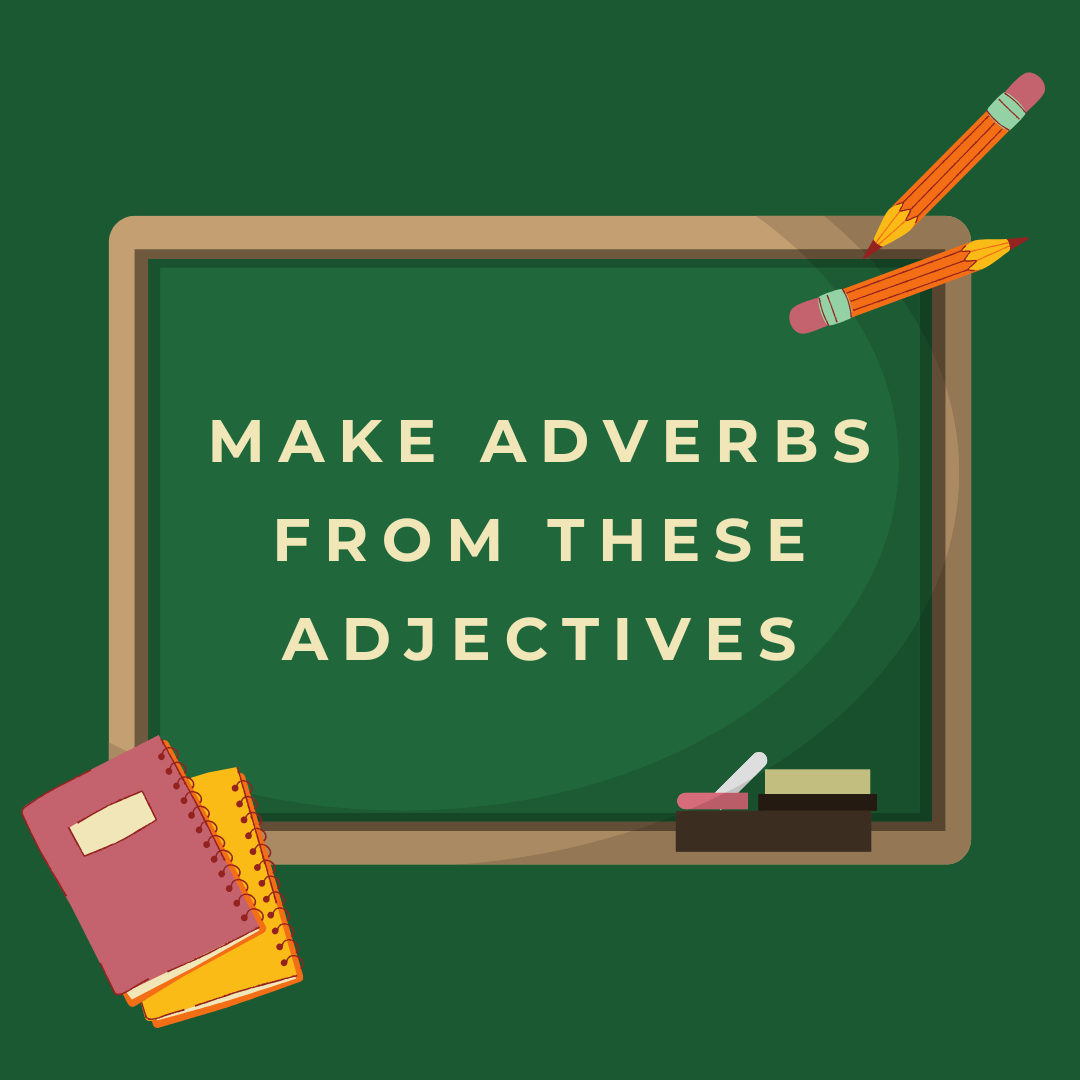Adverbs are one of the important parts of the speech that modify verbs, adjectives, or other adverbs. They mostly tell us how something happens. Many adverbs are formed by simply adding -ly to the adjectives, but there are few exceptions. Here’s the guide below on how to make adverbs from these adjectives.
Make Adverbs from these Adjectives
Check out the 10 examples below for Make Adverbs from these Adjectives
- Angry → Angrily
Example: He spoke angrily after the mistake. - Happy → Happily
Example: She danced happily at the party. - Merry → Merrily
Example: The children sang merrily around the tree. - Noisy → Noisily
Example: The crowd cheered noisily during the match. - Gloomy → Gloomily
Example: He stared gloomily out of the window. - Sleepy → Sleepily
Example: She yawned sleepily after waking up. - Easy → Easily
Example: He solved the puzzle easily. - Tidy → Tidily
Example: She arranged the books tidily on the shelf. - Fast → Fast
Example: He runs fast.
Note: “Fast” remains the same as an adverb. - Beautiful → Beautifully
Example: She painted the portrait beautifully.
Tips to Make Adverbs from these Adjectives
Some of the Tips to Make Adverbs from these Adjectives:-
- For most adjectives, simply add -ly to the end. Example: Quick → Quickly
- If the adjective ends in -y, replace -y with -ily.
Example: Happy → Happily - Some adjectives, like “fast,” have the same form as their adverbs.
Example: Fast → Fast - Be cautious of irregular forms, such as “good” becoming “well.”
By mastering these rules, you can enrich your writing with vivid descriptions and clearer actions. Try using these adverbs in sentences to practice!
